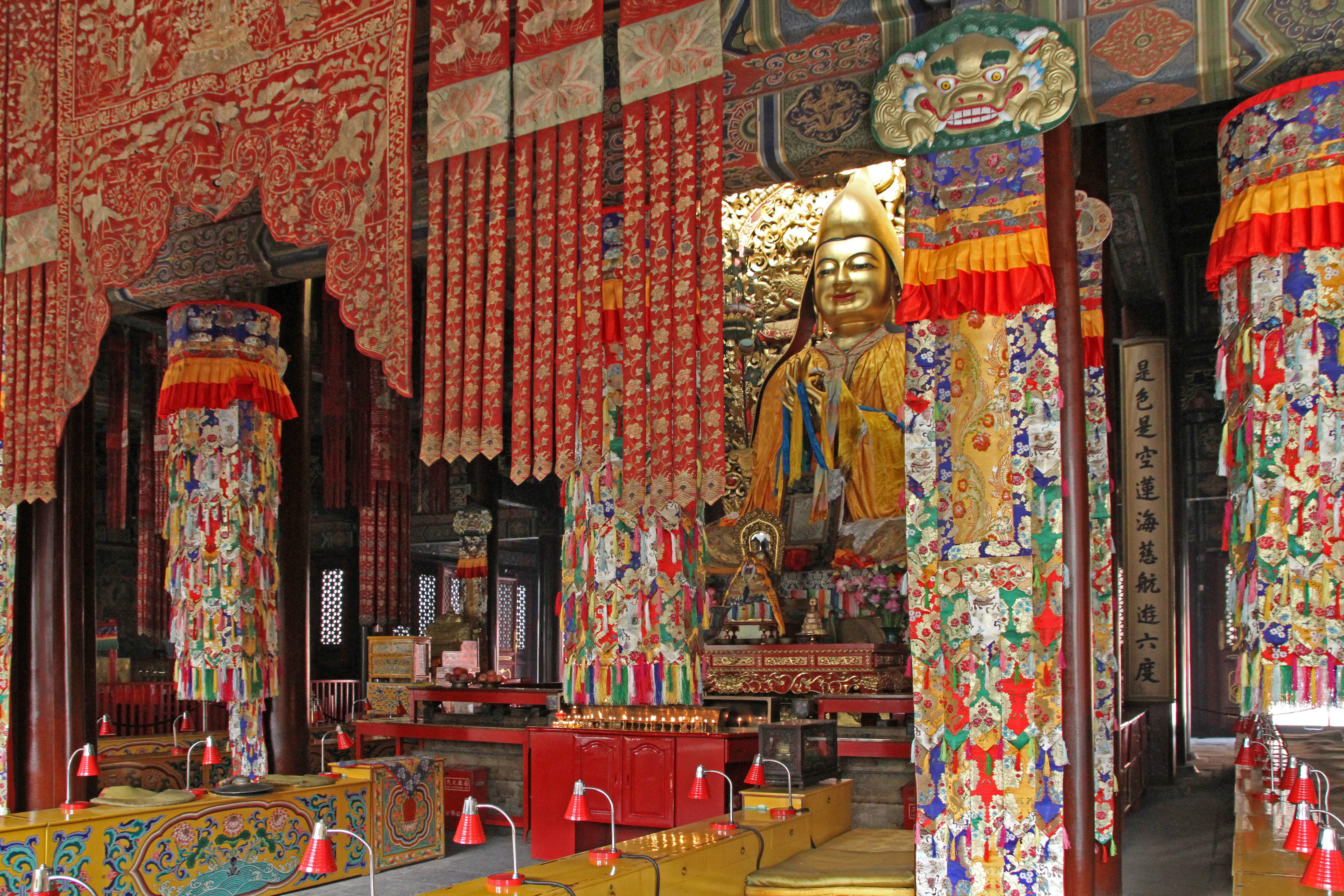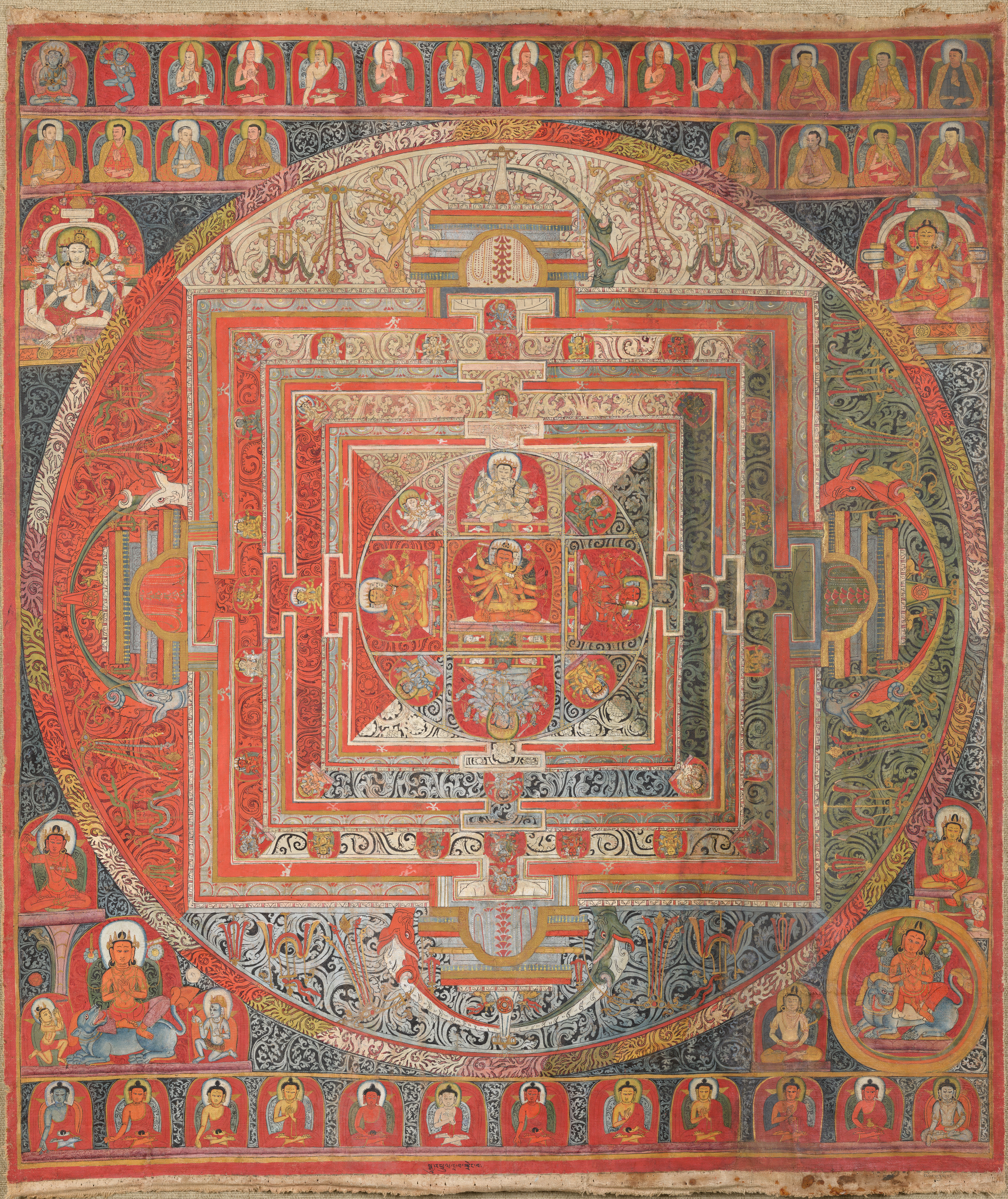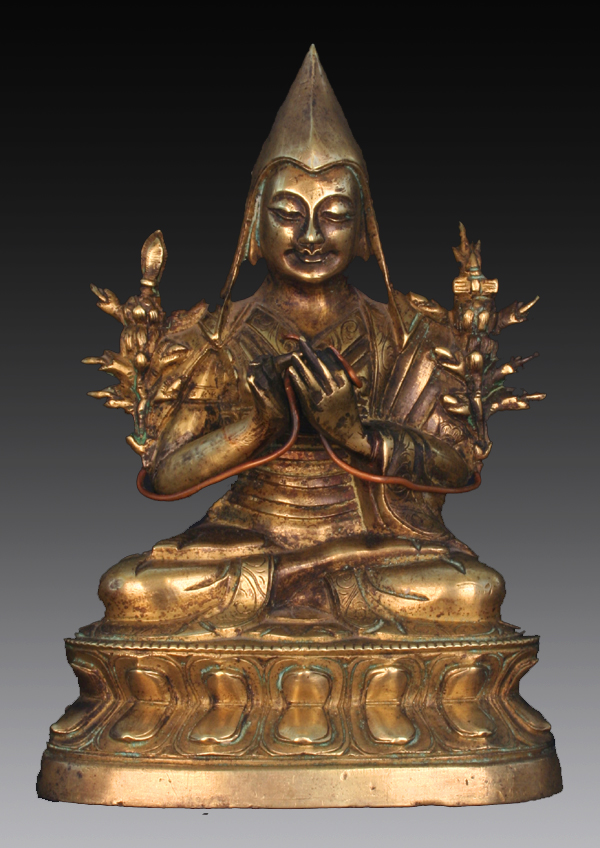Tsong-kha-pa Blo-bzang-grags-pa, 1357-1419
Enlarge text Shrink text- The Author's הכנה לטאנטרה הר של ברכות, תשס"ו 2006.
Tsongkhapa (Tibetan: ཙོང་ཁ་པ་, [tsoŋˈkʰapa], meaning: "the man from Tsongkha" or "the Man from Onion Valley", c. 1357–1419) was an influential Tibetan Buddhist monk, philosopher and tantric yogi, whose activities led to the formation of the Gelug school of Tibetan Buddhism. His philosophical works are a grand synthesis of the Buddhist epistemological tradition of Dignāga and Dharmakīrti, the Cittamatra philosophy of the mind, and the madhyamaka philosophy of Nāgārjuna and Candrakīrti. Central to his philosophical and soteriological teachings is "a radical view of emptiness" which sees all phenomena as devoid of intrinsic nature. This view of emptiness is not a kind of nihilism or a total denial of existence. Instead, it sees phenomena as existing "interdependently, relationally, non-essentially, conventionally" (which Tsongkhapa terms "mere existence"). Tsongkhapa emphasized the importance of philosophical reasoning in the path to liberation. According to Tsongkhapa, meditation must be paired with rigorous reasoning in order "to push the mind and precipitate a breakthrough in cognitive fluency and insight."
Read more on Wikipedia >
 Personality
Personality











